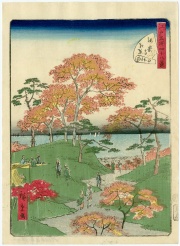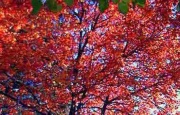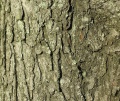Difference between revisions of "Red maple"
Jump to navigation
Jump to search
| (One intermediate revision by the same user not shown) | |||
| Line 1: | Line 1: | ||
| − | [[File:11.20540-SC128725.jpg|thumb|Hiroshige 'Red Maple Leaves' | + | [[File:11.20540-SC128725.jpg|thumb|Hiroshige 'Red Maple Leaves'<br>MFA# 11.20540]] |
== Description == | == Description == | ||
| Line 10: | Line 10: | ||
== Physical and Chemical Properties == | == Physical and Chemical Properties == | ||
| − | Height = 20-40m Flowers = small clusters of yellow-red | + | * Height = 20-40m |
| + | * Flowers = small clusters of yellow-red flowers in early spring | ||
| + | * Fruit = clusters of small samara with divergent wings. | ||
| + | * Bark = grayish with fine platy scales. | ||
| + | * Density = 33 ppcf | ||
| + | * Wood = Sapwood (most commonly used ) is white to light golden; heartwood is darker reddish brown | ||
| + | * Grain is usually straight with a fine even texture | ||
== Working Properties== | == Working Properties== | ||
| − | + | * Resists warping and twisting. | |
| + | * Fairly easy to work with both hand and machine tools, though maple has a tendency to burn when being machined with high-speed cutters such as in a router. | ||
| + | * Turns, glues, and finishes well, though blotches can occur when staining, and a pre-conditioner, gel stain, or toner may be necessary to get an even color. better. | ||
| + | * Surface will not produce a high polish. | ||
== Additional Images == | == Additional Images == | ||
| Line 26: | Line 35: | ||
==Resources and Citations== | ==Resources and Citations== | ||
| − | + | * Wood Database: [https://www.wood-database.com/red-maple/ Red Maple] | |
* R.J. Adrosko, ''Natural Dyes in the United States'', Smithsonian Institution Press, Washington, DC, 1968 | * R.J. Adrosko, ''Natural Dyes in the United States'', Smithsonian Institution Press, Washington, DC, 1968 | ||
Latest revision as of 14:23, 19 September 2022
Description
A deciduous maple tree, Acer rubrum, native to eastern North America that turns bright red in autumn. The red maple trees is considered on of the 'soft maples' as its wood is less dense than that of the 'hard maples'. The trees can grow to heights of 40m and diameters of 1m. The wood is typically used for engraving blocks, carving and paper pulp The bark and leaves from the red maple tree produce a dye that colors Cotton and Wool a cinnamon color with an alum mordant and a black color with an iron mordant.
Synonyms and Related Terms
Acer rubrum; rode esdoorn (Ned.); érable pourpre (Fr.); arce rojo (Esp.); acero rosso (It.); soft maple; water maple; scarlet flowering maple; swamp maple
Physical and Chemical Properties
- Height = 20-40m
- Flowers = small clusters of yellow-red flowers in early spring
- Fruit = clusters of small samara with divergent wings.
- Bark = grayish with fine platy scales.
- Density = 33 ppcf
- Wood = Sapwood (most commonly used ) is white to light golden; heartwood is darker reddish brown
- Grain is usually straight with a fine even texture
Working Properties
- Resists warping and twisting.
- Fairly easy to work with both hand and machine tools, though maple has a tendency to burn when being machined with high-speed cutters such as in a router.
- Turns, glues, and finishes well, though blotches can occur when staining, and a pre-conditioner, gel stain, or toner may be necessary to get an even color. better.
- Surface will not produce a high polish.
Additional Images
Resources and Citations
- Wood Database: Red Maple
- R.J. Adrosko, Natural Dyes in the United States, Smithsonian Institution Press, Washington, DC, 1968
- Dictionary of Building Preservation, Ward Bucher, ed., John Wiley & Sons, Inc., New York City, 1996
- Hardwood Manufacturers Institute, Memphis, Tenn.: air-dry weight = 33 pcf
- The American Heritage Dictionary or Encarta, via Microsoft Bookshelf 98, Microsoft Corp., 1998
- Wikipedia, : http://en.wikipedia.org/wiki/Red_Maple (Accessed Sept. 30, 2005)
- G.S.Brady, Materials Handbook, McGraw-Hill Book Co., New York, 1971 Comment: p. 498
- Random House, Webster's Encyclopedic Unabridged Dictionary of the English Language, Grammercy Book, New York, 1997





